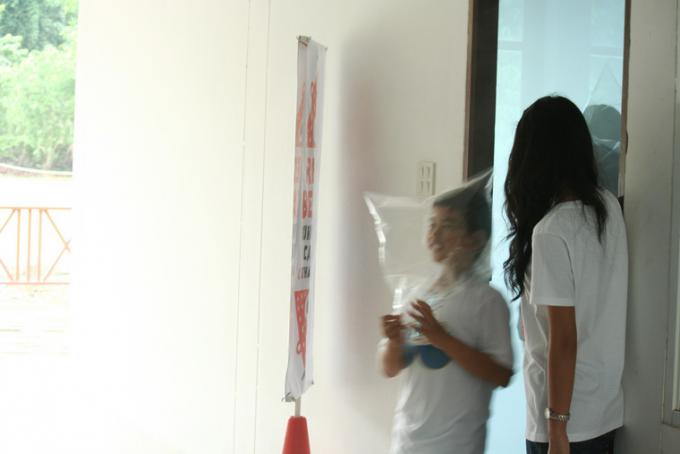“WE DON’T KNOW WHEN DISASTERS WILL HAPPEN. BUT IF IT HAPPENS, THEN I CAN HELP MY FAMILY AND FRIENDS.”

Kasemsan Wantanee (Tong), 12, learns to tackle with disasters as a member of Save the Children’s Urban Disaster Risk Disaster (DRR) Youth Programme.
“I found it very interesting as we learn about disasters and how we can help each other and our families. Disasters happen a lot in my community,” said Kasemsan Wantanee (Tong), living in Don Muang District, Bangkok, Thailand. Tong is among the other 20 children from his community who take part in the Save the Children’s Urban Disaster Risk Reduction Youth Camp.
 I
I“After heavy rains, my area often gets flooded. When it is not heavily flooded, I usually wear boots and wade through the water. In 2011 when Bangkok had the great flood, I saw many people in trouble because they didn’t know what to do. I helped my mom put things to the highest points of our house. Now I learn from Save the Children that we shouldn’t have used tap water in time of floods because it is very dirty. Every child should know how to quickly escape from disasters and be able to help their families,” said Tong.
Save the Children’s project Urban Risk Disaster Reduction, implemented with support from the FamilyMart and the United States Agency for International Development (USAID), aims to prepare children and communities in Bangkok through strengthening the ability of children to confront disasters and help those around them. The children leaders were selected by their communities in order to equip them with awareness of disasters and how they can help their families in time of natural crises. As a result of the training, children were able to identify their needs, exchange their ideas, resulting in the improvement of their knowledge and practices on DRR. Children have also highlighted that floods and fires are the key disasters that they face.
Tong also talked about fire which he had not experienced in real life, “If fire occurs at my house or a house nearby, I will tell other people to use a wet cloth to cover their noses and crouch on the floor because oxygen will be down there. If there is a plastic bag around, we could also use it to save the extra oxygen enough for us to escape from the fire.”

Tong said that he would spread awareness of the Urban Disaster Risk Disaster (DRR) Youth Programme. “Some of my friends couldn’t be here.” He decided to apply what he has learned from the camp. “I will talk to my father about it and ask what I should do. Maybe we can include children activities in our village weekend programme and I can talk about the knowledge I learned from this camp at our community’s library on weekends,” said Tong.
“We don’t know when disasters will happen. But if it happens, then I can help my family and friends.” Tong ended.




